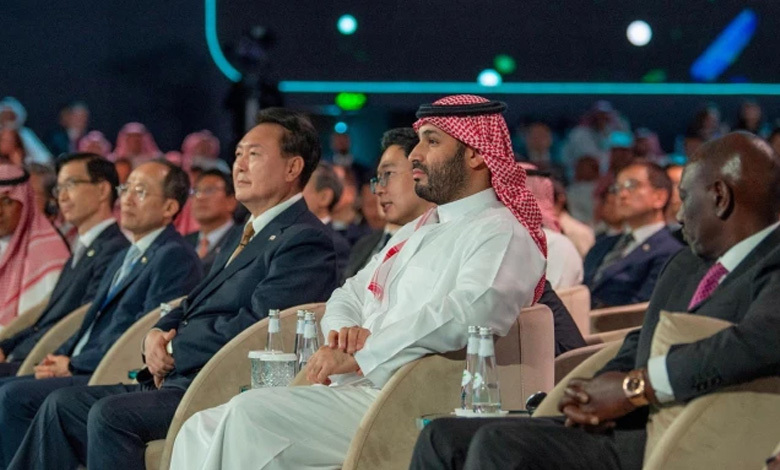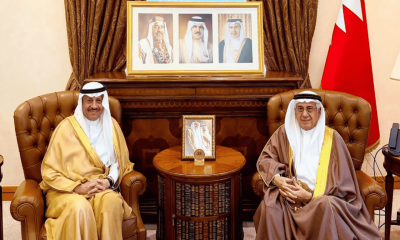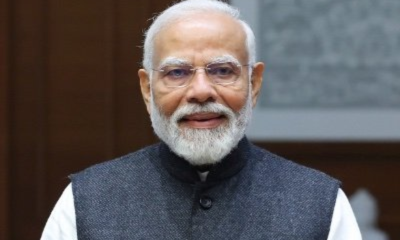During the Israel-Hamas conflict, economic diplomacy takes centre stage at “Davos in the Desert” amid regional tensions.
The topic of conversation at Saudi Arabia’s premier investment conference, which brought together global finance leaders in Riyadh, ranged from the future of the global economy to advances in artificial intelligence.
The terrible conflict between Israel and Hamas, which has dominated the Middle East for more than two weeks, has not received much attention in the media.
As it hosted its yearly “Davos in the Desert” conference, the kingdom and Crown Prince Mohammed bin Salman intended to convey a clear message: it was business as usual and remained open for investment.
One participant who was familiar with the government’s thinking said, “They [Saudi Arabia] don’t want to be diverted, but the humanitarian situation [in Gaza] is very, very sad.”
Drones filming the spectacle hummed beneath the hotel’s conference center’s Arabesque domes as thousands of delegates—who had paid $15,000 to attend the glamorous event—crammed into the Ritz-Carlton hotel.
Former UK chancellor of the exchequer and founding partner of investment firm 9Yards Capital George Osborne said, “If you’re in finance, you want to be here. This is where the finance community gathers once a year.”
Read More: UAE and Singapore Collaborate on Climate and Food Security Initiatives
But business titans like Jamie Dimon, the CEO of JPMorgan, and Larry Fink of BlackRock barely mentioned the conflict between Israel and Hamas in their panel discussions.
Regarding the growing dispute, a senior banker stated, “It’s completely separate.” “This is something different from that.”
According to two individuals who are aware of Riyadh’s thoughts, government representatives were avoiding interviews as a signal that the kingdom did not want the Israel-Hamas conflict to overshadow its yearly highlight event.
The Israel-Hamas conflict, however, is probably going to have a big impact on Saudi Arabia, which is moving forward with ambitious plans to expand the kingdom and diversify its economy, despite the positive atmosphere of the conference on Tuesday.
In exchange for a US security pact, Riyadh has already suspended negotiations with the US and Israel for a three-way agreement to normalise relations with the Jewish state.
The Middle East would become unstable if the Israel-Hamas war intensifies, attracting militants with Iranian support and upending the regional stability that the kingdom sorely needs to move forward with the numerous megaprojects that it is investing tens of billions of dollars on.
Saudi Arabia faces significant risks, chief among them the resumption of its conflict with Iran-aligned Houthi rebels engaged in the civil war in Yemen. In order to combat the rebels, the kingdom spearheaded an Arab coalition that intervened in 2015. However, as Prince Mohammed concentrated on his domestic projects, he tried to pull the nation out of the conflict, and an 18-month truce was maintained.
In an effort to reduce tensions with its fiercest adversary, Riyadh reached an agreement in March to restore diplomatic ties with Tehran.
However, Israeli officials claim that since Hamas’s deadly attack on Israel on October 7, which left over 1,400 people dead, tensions have skyrocketed. In retaliation, Israel bombarded and besieged Gaza, the coastal region under Hamas’ control. More than 5,700 people have died in Gaza, according to local health officials.
Per official statements, Saudi Arabia has engaged in diplomatic efforts to prevent the war from spreading. This month, Prince Mohammed spoke with Iranian President Ebrahim Raisi over the phone for the first time in a long time.
According to the White House, Prince Mohammed and US President Joe Biden had a conversation on Tuesday. The White House released a statement saying, “The two leaders agreed on pursuing broader diplomatic efforts to maintain stability across the [Middle East] region and prevent the [Israel-Hamas] conflict from expanding.”
However, worries about the possibility of a regional conflict were ignored at the investment conference. In fact, the allure of Saudi Arabia’s financial might overrode geopolitical unrest for the 6,000 delegates.
In the pursuit of asset allocations for hedge funds and private equity deals, investment managers and technology executives set aside personal politics, perceiving the oil-rich Middle East as one of the last centres of stable financing.
The fact that many of the delegates believed the war was just the most recent conflict to threaten the world economy may have contributed to their seeming optimism.
Fink compared it to the conflict in Ukraine, which has plagued the world economy since Russia invaded the country early this year.
“We’re watching the situation in Gaza and Israel; we’ve got to see what’s going on,” the BlackRock CEO said during a panel discussion. “In most of my travels in the last two weeks, the word ‘Ukraine’ was never uttered.”
“We’ve had wave upon wave of shocks which are crashing over the global economy,” stated an additional source who is familiar with the government’s thought process. Although there is a serious humanitarian crisis in Gaza that needs to be addressed, the war is ultimately just another shock.






















